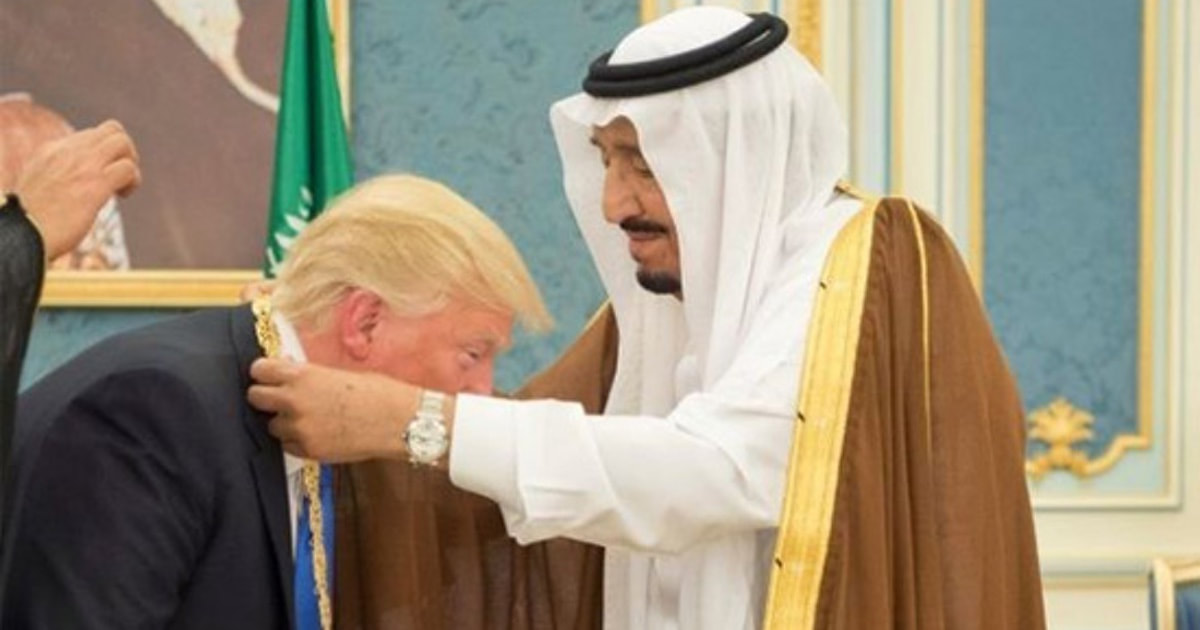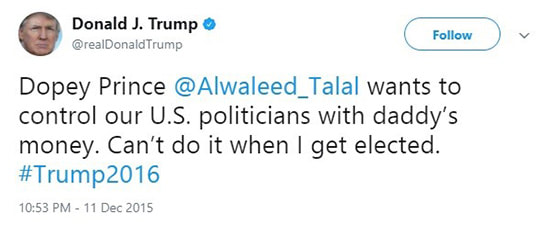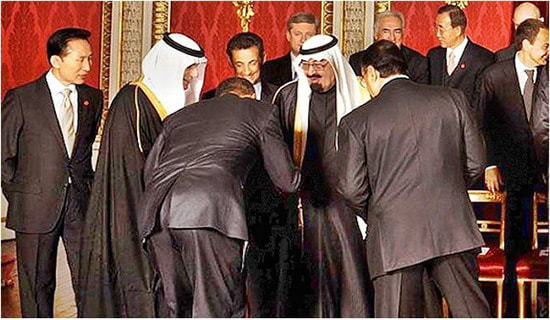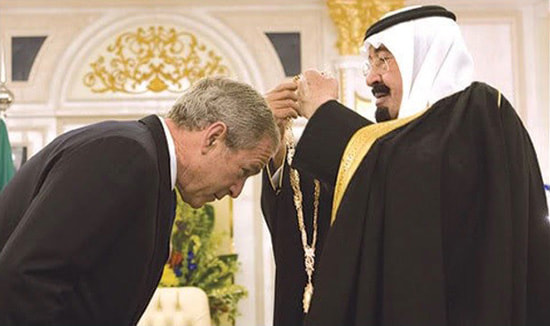|
By Nick Giambruno
As a candidate, Donald Trump used uncommonly harsh language to criticize Saudi Arabia—the world’s largest oil exporter. He called the Saudi regime the world’s biggest funder of terrorism. He also said the Saudi government uses “our petro dollars—our very own money—to fund the terrorists that seek to destroy our people, while the Saudis rely on us to protect them!” At another point, Trump said, “Who blew up the World Trade Center? It wasn’t the Iraqis, it was Saudi [Arabia].” Trump also criticized Hillary Clinton for taking Saudi money for the Clinton Foundation. (They were its biggest “donors.”) He even challenged her to return the money. He also famously got into a Twitter spat with a prominent member of the Saudi royal family, Alwaleed bin Talal.
As a candidate, Trump blasted the Saudis countless other times.
But, after he took office, Trump did a complete 180. He stopped criticizing the Saudis. In fact, he’s now singing their praises. It’s bizarre… as if someone put a severed horse head in his bed. Trump’s about face was astounding. But his newly adopted deference to the Saudis is no different than Obama’s, Baby Bush’s, or any previous president’s.
Today, I’ll tell you why Trump made such an abrupt turnaround. I’ll also explain why the Saudis get special treatment from the US Deep State.
“As Good As Gold”—From Bretton Woods to the Petrodollar
It’s been rightly said that he who holds the gold makes the rules.
After World War 2, the US had the largest gold reserves in the world, by far. Along with winning the war, this let the US reconstruct the global monetary system around the dollar. The new system, created at the Bretton Woods Conference in 1944, tied the currencies of virtually every country in the world to the US dollar through a fixed exchange rate. It also tied the US dollar to gold at a fixed rate of $35 an ounce. The dollar was said to be “as good as gold.” The Bretton Woods system made the US dollar the world’s premier reserve currency. It effectively forced other countries to store dollars for international trade, or to exchange with the US government for gold. However, this pseudo gold standard was doomed to fail. Not surprisingly, runaway spending on warfare and welfare caused the US government to print more dollars than it could back with gold at the promised price. By the late 1960s, the number of dollars circulating had drastically increased relative to the amount of gold backing them. This encouraged foreign countries to exchange their dollars for gold, draining the US gold supply. It dropped from 574 million ounces at the end of World War 2 to around 261 million ounces in 1971. To plug the drain, President Nixon “temporarily” suspended the dollar’s convertibility into gold in 1971. This ended the Bretton Woods system and severed the dollar’s last tie to gold. The “temporary” suspension is still in effect today. This is why the Fed can print as much paper money as it pleases. The death of the Bretton Woods system had profound geopolitical consequences. Most critically, it eliminated the main reason foreign countries stored large amounts of US dollars and used the US dollar for international trade. At this point, oil-producing countries began to demand payment in gold instead of rapidly depreciating dollars. It was clear the US would have to create a new monetary system to stabilize to the dollar. So, the US government concocted a new scheme—the petrodollar system. It gave foreign countries another compelling reason to hold and use the dollar. The new arrangement preserved the dollar’s special status as the world’s top reserve currency. For President Nixon and Secretary of State Henry Kissinger, it was a geopolitical and financial masterstroke. From 1972 to 1974, the US government made a series of agreements with Saudi Arabia that created the petrodollar system. The US handpicked Saudi Arabia because of the kingdom’s vast petroleum reserves and its dominant position in OPEC—and because the Saudi royal family was (and is) easily corruptible. In essence, the petrodollar system was an agreement that the US would guarantee the House of Saud’s survival. Read the rest of this article at International Man Comments are closed.
|
Archives
July 2024
|





 RSS Feed
RSS Feed



